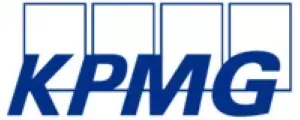Why Malta?
Some Key data
- Malta became the smallest member state in the EU in May 2004, and joined the Euro Zone in 2008.
- GDP per capita is at 85% of the EU average, at €25,306 (December 2020).
- Malta was relatively unscathed during the years following the financial crisis of 2008, and stabilised by 2012.
- Malta has one of the highest figures of sunshine hours in Europe with an average of 3,000 per year.
- English widely spoken and written in Malta, and is the principal language for education and business.
Factors contributing to Malta's competitive advantage
- Robust legal and regulatory environment with a legislative framework in line with EU Directives. Malta is fundamentally a civil law jurisdiction, however business legislation is principally based upon English law principles.
- Malta boasts a high level of education with graduates representing a cross-section of the various disciplines related to financial services. Specific training in financial services is offered at various post-secondary and tertiary education levels. The accounting profession is well-established on the island. Accountants are either university graduates or in possession of a certified accountant qualification such as ACCA.
- A flexible and proactive regulator that is very approachable, business-minded and robust.
- An ever-growing supply of high-quality office space for rent at cheaper prices than Western Europe.
- Malta's development as an international financial centre is reflected in the range of financial services available. Complementing the traditional retail functions, banks are increasingly offering private and investment banking, project finance, syndicated loans, treasury, custody and depositary services. Malta also hosts a number of institutions specialising in trade-related products such as structured trade finance, factoring and forfeiting.
- Major international accountancy firms, including the Big 4 firms, are present on the island. Legal firms tend to be local, though most form part of international legal networks. Many professionals in both areas pursue studies and training overseas.
- Maltese standard time is one hour ahead of Greenwich Mean Time (GMT) and six hours ahead of US Eastern Standard Time (EST) so business runs smoothly with the international community.
- International Financial Reporting Standards, as adopted by the EU, are entrenched in company legislation and applicable since 1997, so there are no local GAAP requirements to deal with.
- A very competitive tax system, also for expatriates, and an extensive and growing double taxation treaty network.
- No restrictions on the granting of work permits for EU and EEA nationals.
To read the full article, please click here.
The content of this article is intended to provide a general guide to the subject matter. Specialist advice should be sought about your specific circumstances.

